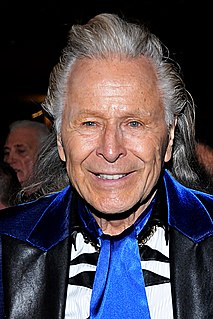A Quote by Joseph Murray
Stem cells are probably going to be extremely useful. But it isn't a given, and even if it were, I don't think the end justifies the means. I am not against stem cells, I think it's great. Blanket objection is not very reasonable to me-any effort to control scientific advances is doomed to fail. You cannot stop the human mind from working.
Related Quotes
Both in Britain and America, huge publicity has been given to stem cells, particularly embryonic stem cells, and the potential they offer. Of course, the study of stem cells is one of the most exciting areas in biology, but I think it is unlikely that embryonic stem cells are likely to be useful in healthcare for a long time.
The average person doesn't understand what a stem cell is. There's a lack of health literacy in our nation. So the public can't really get into this dialogue because they don't understand the complexity of stem cells, not the faith-based approach, not the ideological or political, but the science behind stem cells.



































